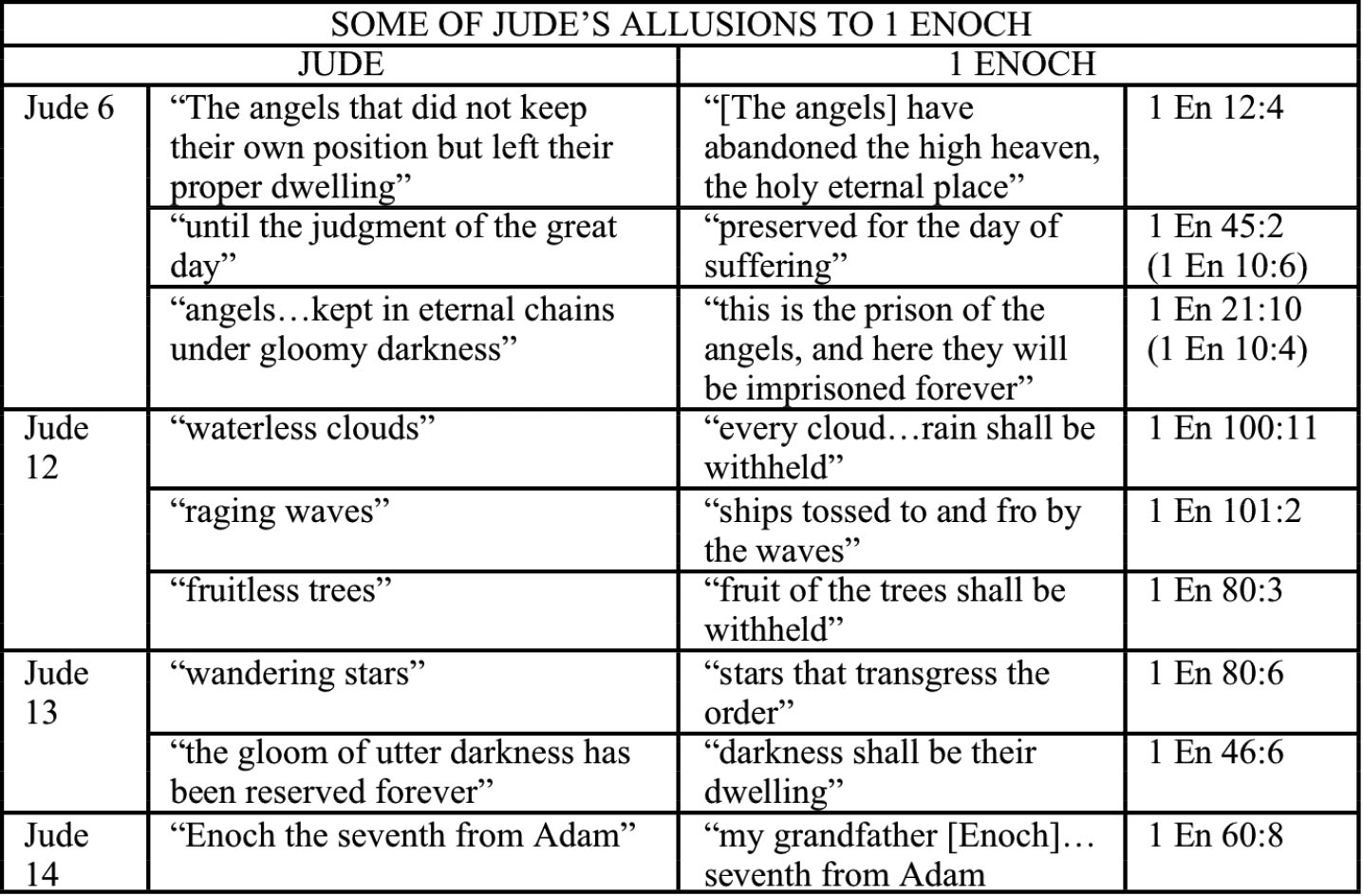With all the talk about the movie Noah starring Russell Crowe, I thought I would add to the conversation so you can be prepared to watch the movie with wisdom and discernment.
I’ve written a Biblical fantasy novel called Noah Primeval. I’ve researched this topic extensively. Noah Primeval has been a category bestseller on Amazon for 3 years. It’s first in a series of novels called Chronicles of the Nephilim.
The Fascinating Case of the Book of Enoch
One of the most fascinating cases of Biblical appropriation of non-canonical texts is the New Testament references to the book of 1 Enoch. Written sometime around the third to second century B.C., this text has both haunted and been cherished by the Christian Church through its history. It is apocalyptic in genre; cloaking warnings of judgment in dream visions, parables, and complex allegorical imagery. But it is most well-known for its detailed elaboration of the Genesis 6 story about the Sons of God (called “Watchers”) and their intimate involvement in the cause of the Noachian Flood.
There it describes in much detail the Watchers as fallen angels revealing occultic secrets to mankind, having intercourse with human women, and birthing giants who cause terror across the land. (1) Here is just a sample of passages that tell that story in much more vivid detail than Genesis 6:
Enoch 6:1-2
In those days, when the children of man had multiplied, it happened that there were born unto them handsome and beautiful daughters. And the angels, the children of heaven, [the Watchers] saw them and desired them; and they said to one another, “Come, let us choose wives for ourselves from among the daughters of man and beget us children.”
Enoch 7:1-8:3, 19:1
And they took wives unto themselves, and everyone respectively chose one woman for himself, and they began to go unto them… And the women became pregnant and gave birth to great giants.
These giants consumed the produce of all the people until the people detested feeding them. So the giants turned against the people in order to eat them. And they began to sin against birds, wild beasts, reptiles, and fish. And their flesh was devoured the one by the other, and they drank blood. And then the earth brought an accusation against the oppressors.
And Azaz’el [the Watcher] taught the people the art of making swords and knives, and shields, and breastplates… and alchemy…[or transmutation: Ancient Ethiopian commentators explain this phrase as “changing a man into a horse or mule or vice versa, or transferring an embryo from one womb to another.”] Amasras taught incantation and the cutting of roots; and Armaros the resolving of incantations; and Baraqiyal astrology, and Kokarer’el the knowledge of the signs, and Tam’el taught the seeing of the stars…
The angels which have united themselves with women. They have defiled the people and will lead them into error so that they will offer sacrifices to the demons as unto gods.
Enoch 10:4, 11-12; 54:6
the Lord said to Raphael, “Bind Azaz’el hand and foot and throw him into the darkness!” And he made a hole in the desert which was in Duda’el and cast him there…And to Michael [the archangel] God said, “Make known to Semyaza [the Watcher] and the others who are with him, who fornicated with the women, that they will die together with them in all their defilement…bind them for seventy generations underneath the rocks of the ground until the day of their judgment and of their consummation, until the eternal judgment is concluded… on account of their oppressive deeds which (they performed) as messengers of Satan, leading astray those who dwell upon the earth.” (2)
Though 1 Enoch is not in the Western canon of Scriptures, it is in the Eastern Ethiopic canon, and was respected by Christian scholars and authorities throughout the early church. It was never considered heretical by church authorities.
But the real kicker is that the New Testament even refers favorably to the book of Enoch and its tradition of fallen angels cohabiting with humans which results in their punishment of binding (1Pet. 3:19-20; 2Pet. 2:4-10; Jude 6-14).
First, Jude quotes the book of 1 Enoch outright when he writes of false teachers corrupting the church:
Jude 14-15
It was also about these that Enoch, the seventh from Adam, prophesied, saying, “Behold, the Lord comes with ten thousands of his holy ones, to execute judgment on all and to convict all the ungodly of all their deeds of ungodliness that they have committed in such an ungodly way, and of all the harsh things that ungodly sinners have spoken against him.”
Here is the text from the actual book of 1 Enoch that Jude is quoting:
1 Enoch 1:9
“And behold! He cometh with ten thousands of His holy ones to execute judgement upon all, and to destroy all the ungodly: And to convict all flesh of all the works of their ungodliness which they have ungodly committed, and of all the hard things which ungodly sinners have spoken against Him.” (3)
But not only does Jude explicitly quote a passage out of 1 Enoch regarding God coming with the judgment of his divine council of holy ones (Sons of God), but all three texts refer to the Enochian notion of the angelic Watchers’ punishment for co-habiting with humans as a violation of the divine/human separation; another main theme of 1 Enoch.
1Pet. 3:18–20
[Christ], being put to death in the flesh but made alive in the spirit, in which he went and proclaimed to the spirits in prison, because they formerly did not obey, when God’s patience waited in the days of Noah.
Jude 6-7
And angels who did not keep their own domain, but abandoned their proper abode, He has kept in eternal bonds under darkness for the judgment of the great day, just as Sodom and Gomorrah and the cities around them, since they in the same way as these indulged in gross immorality and went after strange flesh, are exhibited as an example in undergoing the punishment of eternal fire.
2Pet. 2:4-10
For if God did not spare angels when they sinned, but cast them into hell [Tartarus] and committed them to pits of darkness, reserved for judgment; and did not spare the ancient world, but preserved Noah…and if He condemned the cities of Sodom and Gomorrah to destruction by reducing them to ashes, having made them an example to those who would live ungodly lives thereafter… then the Lord knows how to…keep the unrighteous under punishment for the day of judgment, and especially those who indulge the flesh in its corrupt desires and despise authority.
The New Testament literary reference to non-canonical sources does not mean those sources are the inspired Word of God, nor that everything in them is true; but it certainly does illustrate that the Bible itself draws meaningfully and favorably from interpretive traditions that engage in imaginative embellishment of Biblical stories. Unlike some Christians, God does appreciate creative imagination.
Jude’s references to the book of Enoch are not limited to material citations. He uses the same poetic phraseology throughout his letter that indicates an intimate interaction with the entirety of 1 Enoch on the incident of the Watchers and their condemnation. Researcher Douglas Van Dorn has put together a helpful chart of these linguistic comparisons. (4)
1 Peter 3:18-20 speaks of Christ going down into Hades to proclaim his triumph to the “spirits imprisoned” at the time of the flood. This act appears to be a typological replay of Enoch’s own vision journey into Hades to see the “prison house of the angels” who disobeyed at the flood (1 Enoch 21:9-10).
But the story does not yet end there. You will notice that the location of punishment and binding of the fallen angels that we have already seen in 2 Peter is Tartarus in the Greek.
2Pet. 2:4
For if God did not spare angels when they sinned, but cast them into hell [tartarus] and committed them to pits of darkness, reserved for judgment.
What is important to realize is that the Greek word translated as “hell” in this English translation is not one of the usual New Testament Greek words for hell, gehenna or hades, but tartarus.
Readers may be familiar with the Greek myth of Tartarus as the place where the Titans were imprisoned by the gods. Obviously, Peter does not affirm Greco-Roman polytheism by referring to Tartarus, but he is alluding to a Hellenistic myth that his readers, believer and unbeliever alike, would be very familiar with, subverting it with the Jewish traditional interpretation.
Extrabiblical Second Temple Jewish legends connected this legend of gods and bound Titans in Tartarus to the bound angelic Watchers and punished giants of Genesis 6.
Sibylline Oracles 1:97-104, 119
enterprising Watchers, who received this appellation because they had a sleepless mind in their hearts and an insatiable personality. They were mighty, of great form, but nevertheless they went under the dread house of Tartarus guarded by unbreakable bonds, to make retribution, to Gehenna of terrible, raging, undying fire…draping them around with great Tartarus, under the base of the earth. (5)
Other well-known Second Temple literature reiterated this binding in the heart of the earth until judgment day:
Jubilees 4:22; 5:10
And he wrote everything, and bore witness to the Watchers, the ones who sinned with the daughters of men because they began to mingle themselves with the daughters of men so that they might be polluted…
And subsequently they [the Watchers] were bound in the depths of the earth forever, until the day of great judgment in order for judgment to be executed upon all of those who corrupted their ways and their deeds before the LORD. (6)
This “binding” or imprisoning of supernatural beings in the earth is expressed in 2 Peter’s “cast into pits of darkness reserved for judgment” (3:19), 1 Peter’s “disobedient spirits in prison” (v. 6), and Jude’s “eternal bonds under darkness for the judgment of the great day” (2:4).
Yes, indeed, the New Testament does use 1 Enoch as a source for its own canonical writings. The preponderance of evidence shows that not only does the New Testament letter of Jude quote directly from 1 Enoch 1 (Book of the Watchers), but the entire letter and its alternate version in 2 Peter, show signs of literary and theological dependency on the rest of the Book of the Watchers (Chaps. 1-36), as well as chapter 80 (Book of Luminaries), chapter 46 (Book of Parables), and chapter 100 (Epistle of Enoch). 2 Peter shows evidence of structural and thematic dependency on 1 Enoch 17-22 and 108 (Additional Books). But the fact is, the entire New Testament shows such a multitude of allusions and linguistic echoes of the entire corpus of 1 Enoch, that one can safely say, the book and its basic interpretations may not be Scripture, but are surely legitimated by the Bible and are therefore worthy of study and high regard by the Christian Church.
FOOTNOTES
1. 1 Enoch chapters 1-36 is called the “Book of the Watchers” and deals with this material. The book of Jubilees is another respected text that contains a detailed retelling of the Noah story with Watchers cohabiting with women, and birthing giants. See Jubilees 4-10 and 20:4-5.
2. James H. Charlesworth, The Old Testament Pseudepigrapha: Volume 1, (New York; London: Yale University Press, 1983) 16-18, 38.
3. Pseudepigrapha of the Old Testament, ed. Robert Henry Charles, Enoch 1:9 (Bellingham, WA: Logos Research Systems, Inc., 2004) 14.
4. Douglas Van Dorn, (2013-01-21). Giants: Sons of the Gods (Kindle Location 4850). Waters of Creation. Kindle Edition.
5. James H. Charlesworth, The Old Testament Pseudepigrapha: Volume 1 (New York; London: Yale University Press, 1983), 337.
6. James H. Charlesworth, The Old Testament Pseudepigrapha and the New Testament, Volume 2: Expansions of the “Old Testament” and Legends, Wisdom, and Philosophical Literature, Prayers, Psalms and Odes, Fragments of Lost Judeo-Hellenistic Works (New Haven; London: Yale University Press, 1985), 62, 65.





12 comments on “Noah Facts #10: The Book of Enoch, Watchers and Giants”
Hi Brian. Thanks for expounding on this topic. Interestingly enough, some works by ‘Biblical literalist’ authors come to very similar conclusions to those presented here, e.g. (if we are allowed to post links here) http://creation.com/images/pdfs/articles/sons-of-god-genesis-6.pdf, which affirms the fallen angles view but denies that it continued after the flood (which, to my mind at least, seems to make more sense, though I do not claim an extensive knowledge on the topic).
I bring this up because I am very appreciative of your work (Hollywood World Views especially), and as such have been a little bit miffed by the slightly derogatory allusions in a couple of the earlier posts to ‘Biblical literalists’, to which category I probably belong (though I would call it by a different name, hence the scare quotes).
Hi Kyle. Maybe I should try to be less derogatory about my hyper-literalist friends. The reality is NO ONE takes all the Bible literally. Everyone believes there is symbolism and poetry and figurative language AS WELL AS “literal” reference points. The question is just which parts are which, wouldn’t you say?
Hi Brian. Thanks for the reply. The answer to the first question you raise is, of course, yes. No one in their right mind reads “my bones wasted away” in Psalm 32 and comes to the conclusion that David is suffering from osteoporosis; it’s an obvious metaphor. But these connotations are why I think the term ‘Biblical literalist’ is probably unfair; no-one labelled this would argue that the entire Bible was written with a literal intent (though admittedly, problems have arisen from a faulty understanding of this concept in the past).
But in my experience, this label is almost exclusively reserved for those who take the early chapters of Genesis as reliable history, and argue that this was the author/s’ intent. (I note that you have not used the term in this specific context; you have used it for people who, for example, want to defend a non-Biblical notion of Noah as a white-haired, bearded old farmer – curious. I think this might be more of an American thing, but I can imagine the type.) But, think what you may about the truth of the matter, it seems to me that this is the most reasonable conclusion we can come to about that particular text. This is what makes the term in question a slur; it implies that the target of derision begins with a preconceived notion and misunderstands the text due to insufficient understanding of the language and context, when in actual fact it is the other way around; the conviction is driven by a strong desire and sincere effort to fully understand the text.
Perhaps I have misconstrued your intent here; I’m still not entirely sure why I decided to pipe up (not something I do often on the internet). I think it may have been something to do with my ambivalence at seeing a thinker I greatly respect endorsing a sentiment I resent. Overthinking, perhaps? Sorry.
Kyle, Thank you for your respectful challenge. I will grant you that much of what I called “literalism” or “hyper literalism” comes from a desire to maintain the elevation of the text as God’s Word.
Perhaps we both have experiences that cause us to resent sentiments that appear to be reactionary.
I have come to see in my study of the Bible that there are too many things that when we read in our English, we consider to be obviously plain and direct or even “literal” if you will, that if understood through ancient Hebrew eyes to which it was written, is not at all obviously literal, but in fact metaphorical or poetic. Quite frankly, our culture blinds us to literary and linguistic differences. I do not trust our “plain reading” of the text.
What is “literal” and what is metaphorical is not always so obvious as it appears to our modern cultural eyes.
Many claims that I have heard refer to the “obvious literalism” of a passage are often wrong and that is why I don’t think we can even use the term “literal” fairly. I prefer the term, “literarily,” as in the literary intent which differs widely with genre and authorship.
You say “no one labelled this would argue the entire Bible was written with literal intent,” but I keep meeting many of them.
My experience has been that the slurs are usually by those claiming “literalness” of Genesis against those who do not as being liberals or as not properly believing God’s Word. I have been accused as such. This is not an isolated incident but a pattern of reaction I have seen for many years from “literalists” and it is irresponsible. That is why you may feel a negative context to my words.
I know. I used to do it myself when I was a young earth creationist.
Of course, I have equal contempt for liberal and critical scholars who are just as prejudicial with their demythologization and imposition of modern agendas onto the text as well.
So I guess I am an equal opportunity offender with all modernists, both liberal and literal.
Haha, very nice (the last line there). Thanks for taking the time to clarify your position (speaking of time, what is it where you are; 2am?). I think this is a good resolution to this discussion. I appreciate your position and acknowledge that ‘my side’ (at least, for the sake of this discussion) has its own track record of slurs and bad behaviour. I guess that’s what you get from humans. Thank you once again for your work; I hope we get to chat again.
It’s 11:30 pm by me. Nice chatting. You are one smart cookie. 🙂
I feel almost like Alice, when she passed through the looking glass; inspired by your exceptional writing, I have also now begun to study the Book of Enoch, and you have opened my eyes to realms that I had never before even imagined. Thank you, and may God bless you and your work.
Wow, what a blessing to hear, Slobyskya. I felt the same way a few years back when I began the discovery. http://www.michaelsheiser.com was VERY influential in opening my eyes like Elisha’s servant.
Brian,
Thanks for the good work, but more importantly, thanks for being more Biblical than a large percentage of those who call themselves by Jesus’ Name. I have written several books as well, one of which tells stories about the Nephilim (Black Fox In Thin Places, Emby Press, 2013). I studied the Book of Enoch with my wife beforehand, and today we base our theology, and our sanctification, on the horrifying truth of what actually occurred in the Garden. Funny how the acceptance of sorcery in every perverse form has been relegated to biting an apple.
Here’s a site that has taught me much, if you are not familiar with it.
http://www.oldearth.org/broken_promise.htm
Bless you.
Thats Great, But Why Are They Part Of Hidden Stories, Even In The Bible, Its Not Clearly Understood, Its More Like Idioms, Metaphor Etc. Any Way I Will Keep On Reshearching Wit The Clew At Hand, Gracias.
Whoever archeologist or bible scholar has given time for bible excurvation I am telling you the truth,time has come for you to be rewarded in thousand fold in our new kingdom which is already established by Christ.Jesus is about to say it is done, I am telling you the truth.
Comments are closed.